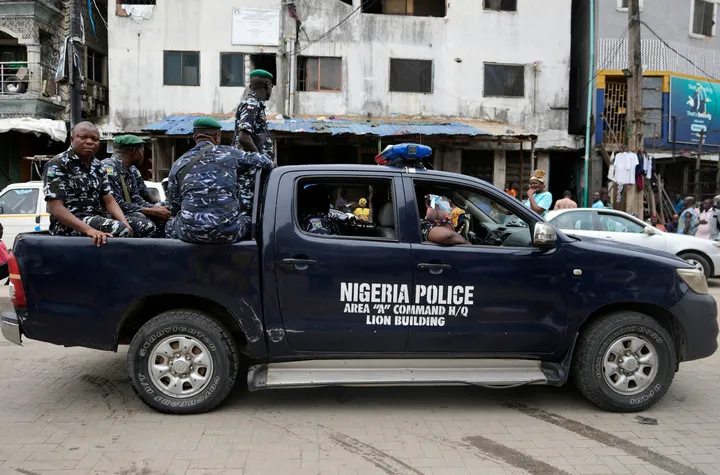The United States and the Taliban said Saturday they had made substantial headway in negotiations to end the 17-year US war in Afghanistan, although sticking points remained.
Zalmay Khalilzad, who was named by President Donald Trump's administration to find a way out of the war, held an unusually long six days of talks with Taliban representatives in Qatar.
"Meetings here were more productive than they have been in the past. We made significant progress on vital issues," Khalilzad wrote on Twitter.
Khalilzad -- who headed to Qatar after talks in Afghanistan and its key neighbours -- said he was returning to Kabul to discuss the negotiations.
"We will build on the momentum and resume talks shortly. We have a number of issues left to work out," he tweeted.
"Nothing is agreed until everything is agreed, and 'everything' must include an intra-Afghan dialogue and comprehensive ceasefire."
While he has not given details, floated proposals include a withdrawal by the United States of its troops in return for Taliban guarantees not to shelter foreign fighters -- the initial reason for the US intervention.
Secretary of State Mike Pompeo later tweeted he had heard "encouraging news" from Khalilzad.
"The US is serious about pursuing peace, preventing #Afghanistan from continuing to be a space for international terrorism & bringing forces home," he added.
"Working with the Afghan gov't & all interested parties, the US seeks to strengthen Afghan sovereignty, independence & prosperity."
TRT World speaks with journalist Rahimullah Yusufzai.
Disputed issues
Taliban spokesman Zabiullah Mujahid said that while there was "progress" at the meetings, reports of an agreement on a ceasefire and talks with Kabul "are not true."
"Since issues are of critical nature and need comprehensive discussions, therefore it was decided that talks about unresolved matters will resume in similar future meetings," he said in a statement.
But a senior Taliban commander sounded optimistic after the talks with the Afghan-born Khalilzad, who played key diplomatic roles in former president George W. Bush's administration.
"The US has accepted many of our demands and both sides are very much agreed on major points, but some points are still under discussion," the Taliban commander told AFP on condition of anonymity by phone from Pakistan.
"We are moving forward and a lot of progress has been made so far.
"Efforts are underway to find some middle ground to solve the remaining disputed issues. The Afghan government is one of them," he added.
Proposals
Details provided by the sources to Reuters include apparent concessions from both sides, with foreign forces to be withdrawn from the country in 18 months from the future signing of the deal.
It is unclear whether a joint statement will be issued, or whether the provisions have been fully accepted by the US side.
US embassy officials in Kabul were not available to comment.
According to the Taliban sources, the group offered assurances that Afghanistan will not be allowed to be used by al Qaeda and Daesh terrorists to attack the United States and its allies - a key early demand of Washington.
The Taliban says that they will finalise a timeline for a ceasefire in Afghanistan but will only open talks with Afghan representatives once the ceasefire is implemented.
Other clauses include a deal over the exchange and release of prisoners from the warring sides, the removal of an international travel ban on several Taliban leaders by the United States and the prospect of an interim Afghan government after the ceasefire is struck, the Taliban sources said.
TRT World'sBilal Sarwary has more details from Kabul.
Casualty rate
Afghan authorities have put a brave face on the negotiations, noting that Kabul has already taken charge of security.
President Ashraf Ghani said Thursday that 45,000 Afghan security forces have died since September 2014 -- a stunning casualty rate of more than 28 dead per day that analysts say has contributed to low morale.
The offer to appoint an interim government in Afghanistan comes at a time when top politicians including Ghani have filed their nominations for the presidential polls in July this year. Ghani has repeatedly rejected the offer to agree to the formation of an interim government.
News of progress on a deal comes as the Taliban continue to stage nearly daily attacks against the Western-backed Afghan government and its security forces.
Despite the presence of US-led foreign forces training, advising and assisting their Afghan counterparts 17 years after the US led an invasion to drive them from power, the Taliban controls nearly half of Afghanistan.
US troops in Afghanistan
The United States has some 14,000 troops in Afghanistan as part of the NATO-led mission, known as Resolute Support, as well as a US counter-terrorism mission directed at groups such as Daesh and al Qaeda.
Despite reports in December last year that the United States was considering pulling out almost half of its forces, a White House spokesman said that Trump had not issued orders to withdraw the troops.
However, the administration has not denied the reports, which have also prompted fears of a fresh refugee crisis.























